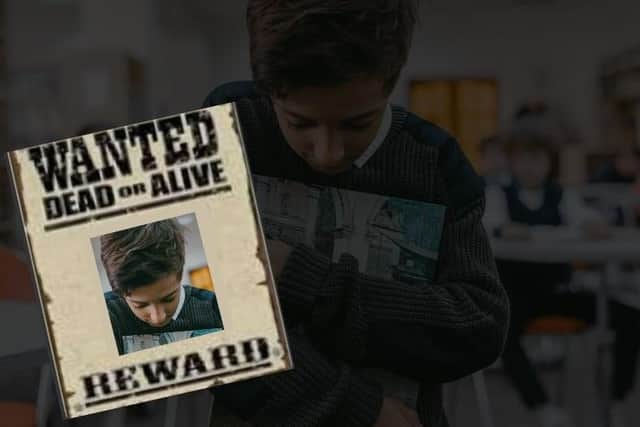Blackpool mum begged teachers to protect teen from 'cruel' cyberbullies and warns parents about 'dangerous' online group
and live on Freeview channel 276
The worried parent said that she’d called the school ‘sobbing and begging’ the teachers to protect her child, and that every moment ‘feels like hell’ after she was sent a screenshot of the upsetting post.
The private group, called #bounties, is used by some of the pupils at South Shore Academy.
Advertisement
Hide AdAdvertisement
Hide AdA wanted poster with a description of how they should be beaten


Members of the group can post a “Wanted: dead or alive” poster with a child’s name and year group, a ‘description of how they should be beaten’, and the amount they are willing to pay other students to harm them.
The Blackpool mum told the Gazette: “It’s horrific, and students as young as year seven are on the app. The school should be monitoring these things, but there doesn’t seem to be any repercussions.”
A warning to parents
The family have spoken out, in a hope to educate other parents who may not be aware their children are being targeted in this way while using the Discord app.
She added: “Please talk to your teens [and] communicate [with them]. Beware of the groups they are on and I pray they are never on that kind of a list.”
Advertisement
Hide AdAdvertisement
Hide AdThe Discord app is a popular social platform for youngsters to chat with each other. They can, often safely, communicate with voice and video calls and send files in private chats or as part of communities called "servers".
What are the school doing about cyberbullying?
Rebecca Warhurst, Headteacher at South Shore Academy, told the Gazette: “Making sure our students are safe is the highest priority at South Shore Academy. We take the stance that protecting children is everybody’s business. From our extensive lessons in personal social and health education, to celebrating diversity and our award-winning work for raising awareness for LGBTQ+, we are proud of our whole school community.
Bullying and cyber-bullying are issues affecting children across the UK and our response to this isolated incident is robust. We are supporting the student involved and are in contact with their parents. We cannot provide any further detail because, as you would expect, our student's welfare is our main concern.”
What can I do if my child has been targeted by cyberbullies?
Cyberbullying is bullying online and any form of anti-social behaviour over the internet or via a mobile device. It is an attack or abuse, using technology, which is intended to cause another person harm, distress or personal loss.
Advertisement
Hide AdAdvertisement
Hide AdAdvice from the UK Safer Internet Centre recommends talking to the school, and contacting the police if there is a direct threat of violence or harm within any conversation.
They also advise parents to:
- Give them the space to share what they want to, in their way, and listen.
- Don’t be shocked by what they tell you, and don’t make them feel embarrassed or ashamed about why they’re asking for help.
- Don’t deny access to technology – Reassure them that their device will not be taken off them if they speak up about something that has been worrying them online.
- Encourage them not to retaliate – it’s very important that you do not retaliate to the cyberbullying. Action can be taken without replying.
- Save the evidence – Take screenshots or saving the messages on the device. This is helpful when reporting the cyberbullying.
- Talk to their school – Take the evidence of bullying and any additional details about the context of the situation and length of time it has been going on for. It is helpful to discuss this with your child and you may want to speak to the school together.
- Talk to the police – If you think that your child is in immediate danger don’t hesitate to call the police. Equally, if there is a direct threat of violence or harm within any conversation then you may also wish to contact your local police for support.
Lancashire Police and Discord were both also approached for comment.
